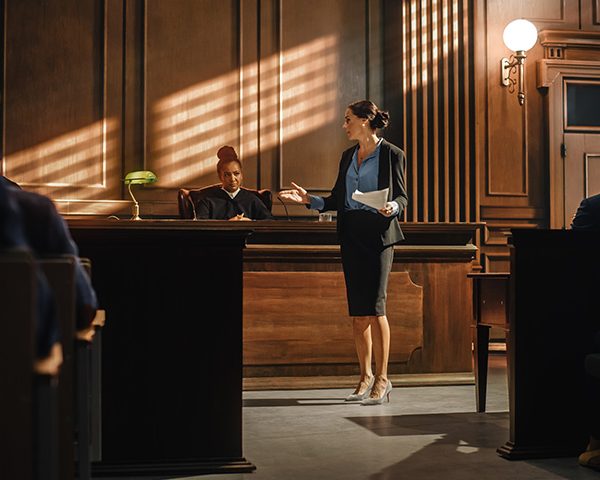Liberty Protection Safeguards (LPS) are intended to replace the current Deprivation of Liberty Safeguards (DoLS) system.
The LPS were introduced by the Mental Capacity (Amendment) Act 2019. DoLS is a system whereby certain authorised bodies can make a decision to deprive someone of their liberty, if that person lacks the capacity to make that decision, and it is decided that it is in their best interests to do so. It will apply in various settings, such as an individual who has a brain injury and needs to be kept in hospital for treatment, or a person with dementia who is placed in a care home that they cannot leave.
The Government felt that the current DoLS system was not working well and has introduced the LPS with the aim of putting the rights and wishes of those people who are detained at the centre of all decision-making on deprivation of liberty.
What changes will be brought by the LPS and how do they differ from DoLS?
In this commentary, we will look at some of the major changes that will be brought by the LPS when it comes into force and how they differ from the current DoLS regime.
Setting
DoLS only apply in care homes and hospitals whereas the new system will be ‘setting neutral’. This means that LPS will not just be restricted to hospitals and care homes – it will apply to any setting. This will include the person’s own home or family home, supported living accommodation and shared lives housing. The LPS focus on the arrangements which confine individuals and amount to a deprivation of their liberty and not the institutions who confine them.
Age
DoLS only apply to those who are aged 18 years old and above. Currently, only the court can authorise the deprivation of liberty for those aged 16-17 who lack capacity to consent to confinement. The LPS will apply to 16 and 17-year-olds, which means the court will not always have to be involved in the young person’s detention.
Authorisation by responsible body
A further major change that is intended to be brought in by the new regime is that whilst under the current DoLS regime care homes and hospitals must ask a local authority if they can deprive a person of their liberty, following implementation of LPS, local authorities and NHS bodies, such as clinical commissioning groups and hospital trusts, will be the ‘responsible bodies’ who will organise assessments and ensure there is sufficient evidence to justify the deprivation of liberty. There will be the potential for delegation of some tasks to care home managers in some cases. The LPS will therefore widen the scope of those bodies and people who can authorise the deprivation of liberty.
Additional scrutiny
As soon as a referral is made to the responsible body to deprive a person of their liberty, the responsible body must then take steps to appoint an ‘Independent Mental Capacity Advocate’ (IMCA) to support the person who is being deprived of their liberty.
It is suggested that if a person would not wish to be cared for under the arrangements, the case must then be considered by an ‘Approved Mental Capacity Professional’.
Additional scrutiny is offered under the LPS by the appointment of an AMCP, particularly in independent hospitals. AMCPs can also consider referrals from the responsible bodies.
However, the Court of Protection will still be involved in assessing whether arrangements are within the individual’s best interests and applications can be made if the person or anyone else wishes to challenge the arrangements authorised by the responsible body.
Conditions
Further, to determine whether an individual can be deprived of their liberty under the new scheme, three assessments will form the basis of the authorisation: a capacity assessment, medical assessment and a “necessary and proportionate” assessment.
Provisions for review and renewal
Under the DoLS regime, an urgent DoLS authorisation lasts for a maximum period of seven days and then it can be renewed for another seven days if required. A standard DoLS authorisation lasts for a maximum period of 12 months and it is not renewable. Upon the expiry of DoLS the supervisory body would need to grant new authorisation to be able to lawfully continue depriving the person of their liberty. Under the new regime however, a person’s first authorisation and renewal can be up to 12 months and renewals can last for up to 36 months.
The responsible body can renew an authorisation if it is satisfied that both of the following apply:
a. the authorisation conditions are still being met
b. it is unlikely that there will be any significant change in the person’s condition during the renewal period, which would affect whether the conditions are met
The review process must be completed by individuals, such as the AMCP, on behalf of the Responsible Body.
What’s next?
The LPS were originally intended to come into force in October 2020, but this was delayed due to the coronavirus pandemic. Whilst later the intention was to bring the LPS into practice in April 2022, the Government has since confirmed that the April 2022 target is unlikely. The Government is yet to set a new target date for the implementation.
There remains much still unknown about LPS and the implementation requirements which is undoubtedly not going to be straightforward. However, it is promising that DHSC will be issuing further guidance and a code of practice to enhance knowledge of the details contained within the new regime. At the time of writing, we are pleased to share a recent update; whilst there is still no proposed date for the implementation of LPS, the draft MCA Code of Practice and regulations are now out, and will be open to consultation until 7 July 2022.
 You & Your Family
You & Your Family You & Your Property
You & Your Property You & Your Business
You & Your Business















